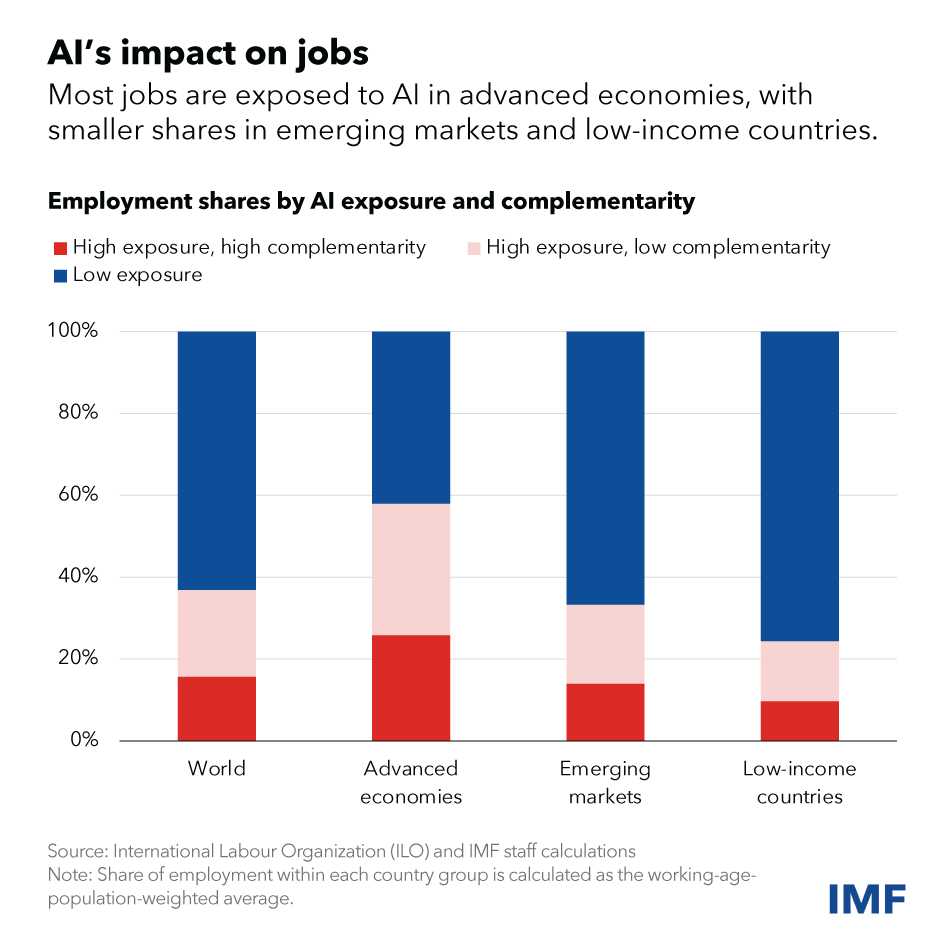IMF’s managing director, Kristalina Georgieva, notes AI will impact 40% of global jobs, with potential benefits and challenges. Advanced economies could see 60% job impact; however, it may worsen inequality. AI could exacerbate income inequality and unemployment, especially in low-income countries. Georgieva stresses the need for social safety nets and retraining programs. Richer nations are more prepared for AI adoption.

“`html
Impact of AI on Jobs and Inequality
AI technology is expected to impact nearly 40% of jobs worldwide, presenting both opportunities and challenges. While AI integration can enhance productivity in advanced economies, it also poses the risk of displacing human skills and exacerbating income and wealth inequality.
Practical Solutions and Value
Amidst these challenges, companies can leverage AI solutions to stay competitive and redefine their way of work. Practical steps include identifying automation opportunities, defining measurable KPIs for AI endeavors, selecting customized AI tools, and implementing AI gradually through pilot projects and data gathering.
AI Preparedness Index
The IMF has developed the AI Preparedness Index to assist countries in preparing for AI’s impact, evaluating readiness across digital infrastructure, labor market policies, innovation, and regulatory frameworks. Wealthier nations are generally more prepared for AI adoption.
Regulation and Social Safety Nets
Recognizing the challenges, IMF’s managing director emphasizes the importance of comprehensive social safety nets and retraining programs for vulnerable workers. The global response includes steps towards regulation, such as the European Union’s move to implement comprehensive AI laws.
Practical AI Solution
Consider the AI Sales Bot from itinai.com/aisalesbot designed to automate customer engagement 24/7 and manage interactions across all customer journey stages. It offers a practical solution for redefining sales processes and customer engagement.
“`
List of Useful Links:
- AI Lab in Telegram @aiscrumbot – free consultation
- IMF: AI to impact some 40% of jobs worldwide with mixed consequences
- DailyAI
- Twitter – @itinaicom




























